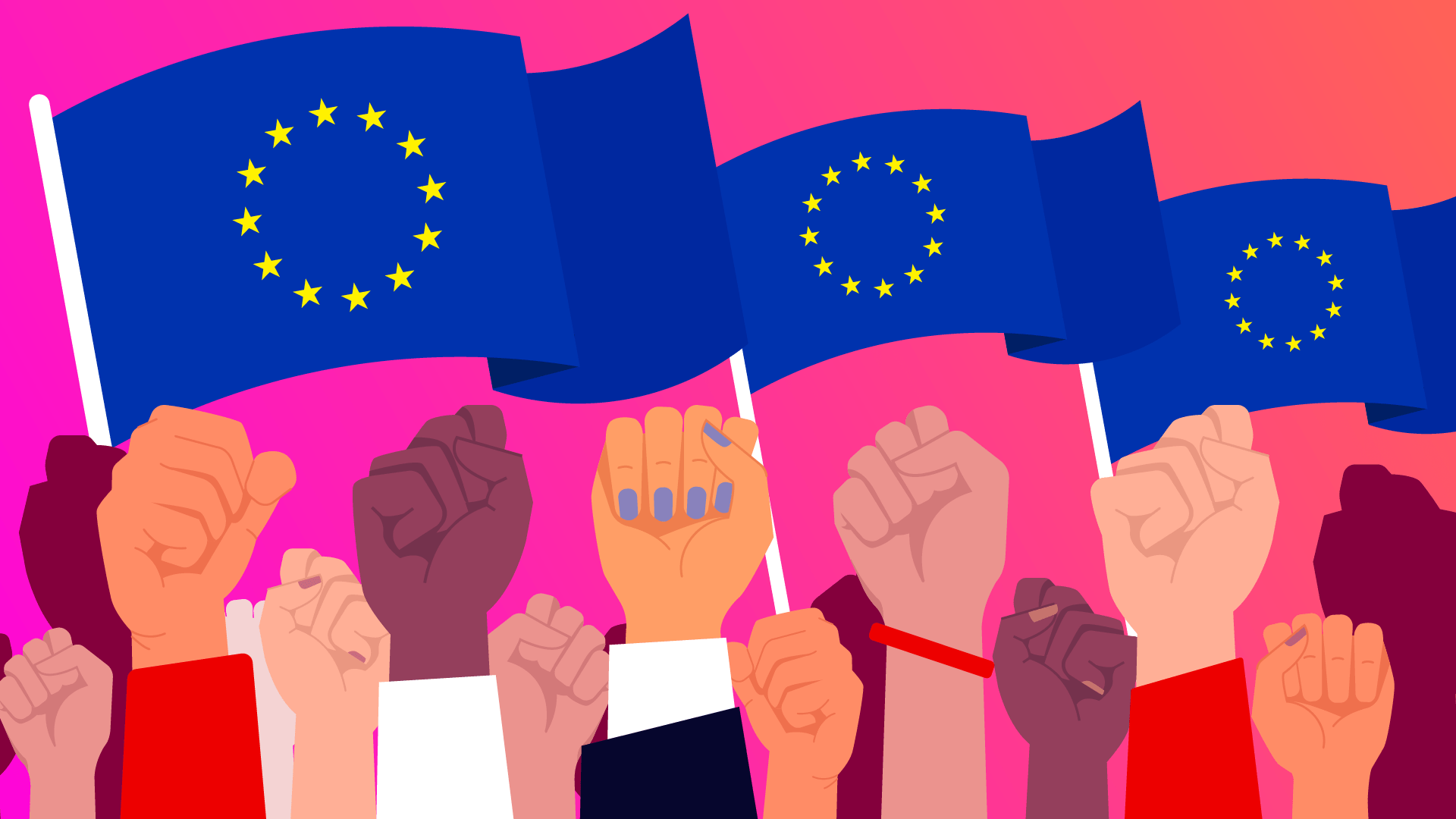
At the end of 2023, we reached a landmark agreement on ground-breaking new rules that will set a new global standard for corporate behaviour, making sure that big companies are obliged to prevent, mitigate and remediate abuses in their value chains, and to implement climate change mitigation plans. Thanks to the work of the S&Ds, whenever a company’s supplier has labour exploitation in their factory, it will have to take action to stop it or face sanctions. Victims of corporate abuse will also be able to get justice much more easily.
With the determined support of the S&Ds, the EU adopted a new law that will shed light on corporate behaviour and ensure companies are more transparent about their environmental and social impacts. Sustainability data will become comparable, meaningful and accessible. New reporting and auditing processes will help hold companies accountable and end greenwashing.
We secured a historic deal on the new EU law to protect platform workers in December 2023. Despite huge pressure from aggressive lobbying by big digital companies, we are creating a legislation that will protect particularly vulnerable workers. It will significantly improve the social and labour rights of gig earners working for Uber, Deliveroo and similar platforms, protect the genuinely self-employed, and shield good employers against unfair competition.
The S&Ds have achieved stronger rules to fight for a new EU law that will effectively prevent environmental damage and address new environmental crimes, including a qualified offence for the worst crimes laying the foundations for ecocide (forest fires, widespread pollution or industrial accidents). The new law will also impose stricter sanctions for those found guilty of environmental crimes. This should discourage companies from profiting at the expense of the planet.
After 10 years of deadlock due to some conservative governments, the Parliament, led by the S&D Group, adopted a new law that will boost gender balance in economic decision-making by introducing quotas for women on corporate boards. Quotas are expected to not only improve corporate performance but also to trickle down to achieve more women in management.
The S&Ds have led the Parliament’s work on taxation. The EU has started to end the tax ‘Wild West’. The S&D Group fought for a strong EU position on minimum effective taxation for big companies. Today, the EU applies a minimum effective tax rate of 15%, which is becoming the global norm. Also under S&D leadership, the EU agreed to allow anyone to check if big companies are paying their taxes where they operate, through new public country-by-country reporting rules.
The S&Ds have been at the forefront in each step of the EU plan for sustainable finance, which included transparency requirements for financial products and an EU gold standard for defining environmentally-sustainable investments (the so-called EU Taxonomy).
We have fought for rules for companies to take responsibility for people and the planet, and become more transparent about their environmental and social impacts. Today, about 25 million people are in a situation of forced labour. In addition, hazardous business practices are also responsible for most of the deforestation across the globe. As the world’s largest single market, the EU cannot turn a blind eye. It has the power to fix the damaged chain by obliging big companies to stop human rights and environmental abuses wherever they operate – around the world and in their global value chains.
We have fought for a landmark EU law to protect vulnerable workers in the digital economy. This has been a key S&D demand in the current mandate as the increasing use of digital technologies, the growing popularity of e-commerce and the rise of cloud computing are just a few examples driving the rapid increase in the digital economy as a share of the whole economy. The benefits of the digital economy are being disproportionately enjoyed by the wealthy, while workers in lower-wage jobs have seen a decline in their rights, working conditions and social protection. In December 2023, led by the S&Ds, the Parliament reached a landmark agreement on platform work that sets a new social standard across the EU and guarantees rights, decent working conditions and social protection for platform workers.
We are striving to ensure equal representation of women, including in economic decision-making. Today, less than one in ten of top companies’ CEOs are women. By increasing the number of women in management positions, we will promote social justice and prosperity, given the proven links between better corporate performance and a wider diversity of views among those in influential positions in a company.
We are promoting a zero-tolerance position on environmental crimes that have huge consequences on people’s health and the environment, such as the illegal emission or discharge of substances into the air, water or soil, or the illegal wildlife trade. Today, environmental crime represents the fourth largest criminal activity in the world, following drugs, weapons and human trafficking. This is why we are fighting for rules to prevent environmental damage and to punish serial polluters where they make profits at the expense of the planet. There must be a heavy price to pay for harm to human health and to the environment.
We are fighting to combat tax evasion and abuse by big companies. Europeans demand tax justice, which is only possible if all companies, including big multinationals, pay their fair share of tax. For years, we have been pushing for harmonised taxation of big companies. After two failed attempts in 2011 and 2016 — due to the resistance of some EU tax havens — we now have new legislative proposals. We will do our utmost to ensure that the third attempt yields positive results. Negotiations are ongoing on an S&D-backed proposal to harmonise the tax base of large companies.
We are fighting for a transition to a net-zero economy, which requires rules to mobilise massive green investments. The S&Ds are currently leading the negotiations for due-diligence rules for financial institutions and an ambitious regulation on environmental, social and governance (ESG) ratings to ensure transparency and prevent conflicts of interest for rating providers.

